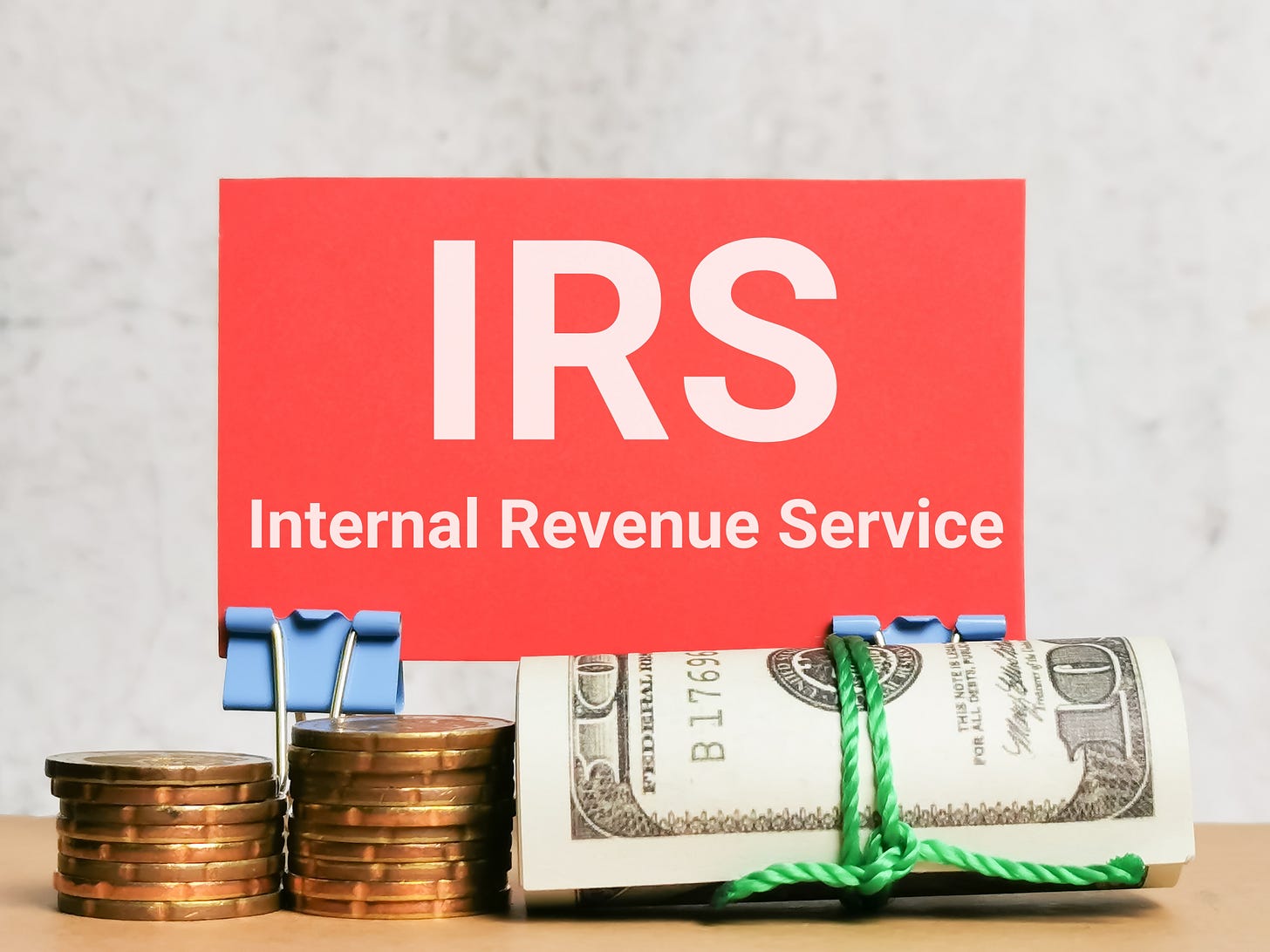The Real Estate Agent’s Ultimate Guide to Taxes in 2025
A complete 2025 tax guide for real-estate agents and brokers — from quarterly payments to S-Corp strategies and year-end planning.
Taxes can feel like a maze with forms, deadlines, rates, and deductions, especially for agents whose income isn’t steady and whose expenses are all over the place. But with the proper roadmap, you don’t have to fear Tax Time. You can use a tax strategy to save more, stress less, and stay ahead.
Here’s everything real estate agents and brokers should know about taxes, wrapping up the 2025 year, as well as the general landscape we face being outside the W-2 world.
How the IRS Sees You: Self-Employed, Not an Employee
If you’re a licensed real estate agent or broker associate, you’re not an employee of your brokerage — you’re a self-employed independent contractor.
That means:
You’ll receive a Form 1099-NEC for your commissions (not a W-2).
No taxes are withheld from your commission checks.
You’re responsible for both sides of Social Security and Medicare, known as self-employment tax (15.3 %). As a W-2 employee, your employer typically pays the employer portion.
You can deduct legitimate business expenses to calculate your net earnings (income – expenses).
Think of it this way: your brokerage pays you gross income. The IRS sees you as running your own business.
Your Tax Responsibilities as a Self-Employed Agent
Federal income tax – based on your total taxable income.
Self-employment tax – 15.3 % on roughly 92.35 % of your net earnings.
State income tax – depends on where you live or earn income.
Estimated tax payments – since no one withholds taxes for you, you’re expected to pay as you go (hello, quarterlies).
💡 Example:
You earn $80,000 in commissions. After $20,000 in deductible expenses, your net income is $60,000.
You’ll owe:
Federal income tax on $60,000 (after standard or itemized deductions)
Self-employment tax on about $55,000 (≈ $8,400)
Possibly state income tax
This is why agents who don’t set money aside for taxes get caught off guard at year-end — and why the IRS built the quarterly payment system.
💡 Fun Tax Fact:
Even if you file an extension past April 15 to submit your return, the IRS still expects you to pay what you owe by April 15.
Interest starts accruing the day after the original due date on any unpaid balance — even if you’ve filed Form 4868 and have until October for personal tax or August for business to turn in the paperwork.
Late-payment interest runs at the federal short-term rate + 3 % (compounded daily), and after 60 days you may also face a separate late-payment penalty of 0.5 % per month (up to 25 %).
👉 So while an extension buys you time to file, it does not buy you time to pay. SO always make sure you are your tax proffesional see if making an estimated payment while extending maxes sense for you.
Quarterly Taxes for Dummies (Real Estate Edition)
Reference: IRS
What Every Agent Needs to Know Before the IRS Comes Knocking
Most agents don’t think about taxes until April. But the IRS has a very different expectation: if you’re self-employed and expect to owe more than $1,000 in tax for the year, you’re supposed to pay quarterly estimated taxes.
That means four times a year — April, June, September, and January — the IRS expects a check. If you also don't pay 100% of last year’s taxes or 110% if your prior year income was high, this also means you pay a penalty come tax time. Additionally, depending on the state, you may also owe them.
Scary? It can be. But let’s break down what it really means for you as an agent or broker.
Why the IRS Wants You to Pay Quarterly
Employees with W-2 jobs have taxes withheld from their paychecks. Agents on 1099s don’t — which makes you responsible for paying as you go. The IRS doesn’t like waiting until April for your money, so they requires estimated payments throughout the year.
Miss those? You risk incurring underpayment penalties, even if you pay in full by April 15.
Who’s Supposed to Pay (Technically Everyone)
According to the IRS, you need to pay quarterlies if:
You’re self-employed and expect to owe $1,000 or more after credits/withholding.
You don’t have enough taxes withheld elsewhere (spouse’s W-2, second job, etc.).
That means nearly every full-time real estate agent and broker is subject to this rule.
👉 Scary reality: If you’re making commissions and no one is withholding, the IRS expects quarterlies.
When It Actually Makes Sense
Here’s the truth: many newer agents making under $50K–$70K net income don’t pay quarterlies — and they usually don’t get hit hard. Penalties are relatively small, and cash flow is often tight in the early years.
But once you’re consistently netting above that threshold, ignoring quarterlies becomes dangerous:
You risk big April tax bills that wreck your cash flow.
Penalties grow as income grows.
It’s usually around this exact point that an S-Corp election makes sense — which changes how you handle taxes entirely.
S-Corp vs. 1099: What Changes
As a 1099 self-employed agent, You’re 100% responsible for quarterlies.
As an S-Corp: You pay yourself a W-2 salary with tax withholding built in. That covers most of your liability.
Distributions from the S-Corp may still require extra tax payments, but you can often adjust your W-2 withholding to avoid quarterlies altogether.
👉 Rule of thumb: If you’re earning enough that quarterlies start to matter, you’re probably also ready to discuss an S-Corp. Click here to read my article on whether an S Corp should be formed.
What If You Operate as a Partnership?
How Team Leads, Partners, and Co-Owners Are Taxed
Sometimes two or more agents team up — maybe to share marketing costs, pool assistants, or operate under a team name. If you open a joint business account or share income formally, the IRS treats you as a partnership by default.
That means:
You’ll file an annual partnership return (Form 1065).
Each partner receives a Schedule K-1 reporting their share of the profits or losses.
Each partner pays taxes individually on that income — even if the partnership doesn’t distribute cash.
The Upside
Easier to split expenses and income transparently.
Can formalize team arrangements and prevent disputes.
Allows joint ownership of assets or marketing systems.
The Cautions
Partnerships add complexity and cost — you now have a separate tax return.
Each partner owes self-employment tax on their share of income.
You must have a clear partnership or operating agreement to define profit splits, responsibilities, and exit terms.
Liability can still pass through to individuals unless you register as an LLC partnership or elect another structure.
When It Makes Sense
When two or more agents truly co-own the business or brand.
When a broker requires a registered entity for team operations.
When income is significant enough that you can afford bookkeeping and legal support.
When It Doesn’t
If you’re simply sharing office costs or referring clients — a written expense-split agreement is usually simpler.
If one partner is mostly inactive, a contractor relationship is cleaner or have them as an agent on your team with a specific split and roles.
💡 CFO Tip: Once a partnership starts earning serious money (say $100 K+ net), it’s often worth exploring an S-Corp election for the partnership or converting to multiple S-Corps under one umbrella to reduce self-employment tax and better protect profits.
How to Make Quarterly Payments
Use Form 1040-ES for federal estimated payments found here.
Pay via IRS Direct Pay, EFTPS, or through your IRS account online, found here.
For your state: use your state’s payment portal (check with your state tax authority).
2025 due dates are (for estimated federal taxes):
• April 15, 2025
• June 16, 2025
• September 15, 2025
• January 15, 2026 (final for late-year income)
Use safe harbor rules to avoid penalties: paying 100 % of last year’s tax (or 110 % if your prior income was high) is often sufficient to avoid a tax penalty.
Smart Year-End Moves & Tax Strategy for Agents

Cleaning Up the Books (High-Level Recap)
You should already be:
Reconciling all accounts
Categorizing expenses properly
Storing receipts (especially for big-ticket items, marketing, staging)
Tracking mileage & home office usage
If there are gaps, fix them now — clean books are your foundation.
Strategic Deduction Timing
Don’t just spend arbitrarily. Use your tax planning to shift expenses into this year when it makes sense. Some ideas:
Prepay ad credits or marketing services that you’ll use early next year (receipts trigger deduction now).
Early licensing/education registrations for the next year.
Equipment, supplies, and software you planned to acquire—do it now to lock in the deduction.
Retirement contributions are often the most beneficial deductions. Funding or maxing out a Solo 401 (k), SEP IRA, or other plans is a high-leverage tax strategy.
These moves do more than reduce tax — they shape your business and wealth.
Pro Tip: Do not Spend just to spend, if you werent going to spend the money many times it isnt worth any tax savings compared to what you spend.
Using Projections & Advanced Planning
This is where professionals truly separate themselves. As your tax advisor, here’s what I can do for you (beyond just preparing your return):
Import last year’s return and match with your year-to-date numbers.
Model what if scenarios (more closings, equipment purchases, S-Corp election) to see how your tax liability shifts.
Identify moves you can make before year-end to lower your current year’s tax (or reduce your tax burden in April).
Help set up quarterly estimates, withholding strategies, and S-Corp salary structure so next year isn’t a scramble.
When you work with someone who uses these tools, tax planning becomes a forward-looking strategy — not just a filing task.
When to Hire Help
You don’t need complex professionals in Year 1, but as things scale, your team matters:
Bookkeeper: to maintain clean and accurate records.
Tax professional/advisor: for projections, strategy, and reducing surprises.
CFO (Typically a CPA): When you operate multiple entities, handle multi-state work, or want audits/reviews.
Financial advisor/planner: for turning your earnings into long-term wealth.
My Experiene as a fellow Realtor:
Bookkeeper: Using somoneone that understands this business we are in as Agents is impartant to track numbers properly and effectivly for your business.
Tax Proffesionals: Just because someone is a CPA doesnt always make them the best with tax (mind you I am on my way to become a CPA so I hold them at the most knowlewdgable in accounting), this is why many CPA’s in tax also get their EA (enrolled agent) and many more will become attornys who understand Tax law to represent you against the IRS. Likewise any proffesional who does your taxes is helping you comply with what you owe, not helping you advise on next year taxes (this is a whole different arena, one I work in everyday)
Financial Advisors: This isnt shade, as many great men and woman work in this field but remember like us as Agents most work with brokers who pottentially can limit what products they can show you. So like everyone else make sure to find the right fit for your situation.
Final Thoughts
Taxes are no longer a fear — with the proper knowledge and planning, they become a minor obstacle.
This 2025 guide is your map. Use it to:
Know what the rules are for your business model
Make informed, strategic moves before year-end
Step into next year with confidence, not dread
If you’re ready to go deeper (projections, S-Corp setup, or smart withholding), just hit reply or schedule a meeting with me below.
Disclaimer as always my friends:
This article is for educational and informational purposes only and should not be considered legal, tax, or financial advice. Tax laws and thresholds can change each year and may vary by state. Always consult a qualified tax professional or advisor who understands your personal situation before making financial decisions.



